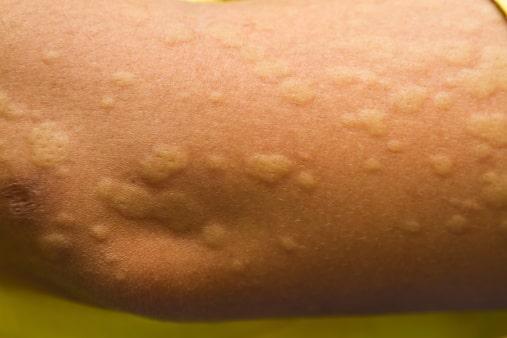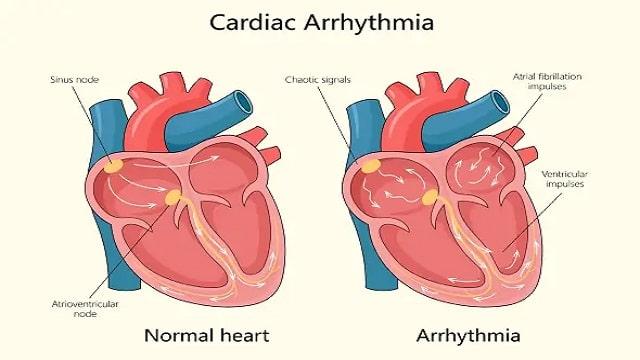
Cold Allergy Symptoms, Risk Factors & Treatment | Diseases List A-Z
Cold Allergy Not everyone can stay comfortable when facing cold air.
Some people experience cold allergy problems, or in medical terms is cold urticaria.
This problem can cause itchy welts and redness of the skin within minutes of exposure to cold.
The symptoms of cold allergies experienced by each person can vary, ranging from mild to severe reactions.
For some people, swimming in cold water can cause loss of consciousness, drop in blood pressure, and even be fatal.
This disorder occurs most often in adolescents and may disappear completely after a few years.
In addition, preventive measures are very important so that this problem does not recur.
Cold Allergy Symptoms Signs or symptoms that can arise when someone experiences a cold allergy can range from mild to severe.
For mild symptoms may include: Temporary reddish spots accompanied by itchy welts on the skin areas exposed to the cold.
Bad skin reaction when the cold wears off.
Experience swelling in the hands when holding cold objects.
There is swelling of the lips due to consuming cold food or drinks.
Then, for severe reactions, among others: Experiencing anaphylaxis which can cause fainting, heart palpitations, body swelling, and shock.
Swelling of the tongue and throat that makes it difficult to breathe.
Heart palpitations.
Decreased blood pressure.
Faint.
Symptoms of urticaria begin immediately when the skin experiences a sudden drop in air temperature or cold water.
Each episode can last up to about two hours.
The most severe problem occurs when the whole body is exposed to cold, such as swimming in cold water.
If not treated immediately, the sufferer can lose consciousness and drown.
Cold Allergy Risk Factors This disorder, called cold urticaria, is most common in teenagers.
About half of those who suffer from it may or may not get better after 6 years.
Risk factors can be conditions or situations that increase a person’s likelihood of experiencing an allergic reaction when exposed to cold temperatures or extreme temperature changes.
Here are some risk factors you need to be aware of: History of allergies.
A person who has a history of allergies to certain substances, such as pollen, animal dander, or certain foods, is more susceptible to this condition.
Asthma.
People who have asthma or other allergies, such as allergic rhinitis or atopic dermatitis (eczema), are at higher risk of developing this condition.
Age.
Children and adolescents tend to be more susceptible to it than adults.
Family history.
If you have a family history of this condition or other allergies, you may also be at higher risk for developing this condition.
Environmental exposure.
People who live or work in environments that tend to be cold or are exposed to cold temperatures for extended periods of time may be at higher risk for developing this condition.
Outdoor activities.
Being active in cold temperatures or extreme temperature changes can increase the risk of cold allergies.
Low humidity.
Environments with low humidity, especially in winter, can also trigger cold allergies.
Physical activity.
Some people experience cold allergies especially when doing physical activities, such as running or exercising in cold temperatures.
Cholinergic urticaria reaction.
Some people develop an allergic reaction called cholinergic urticaria when their body temperature rises due to physical activity, stress, or heat.
Causes of Cold Allergies Allergies can appear when the skin is exposed to cold weather and are at risk of appearing in windy and humid conditions.
Research has found that this condition is caused by the release of histamine and chemicals into the bloodstream triggered by cold air.
People who suffer from it will experience a rash or itching on the skin after: Eat or drink something cold.
Put ice on the skin.
Swim or soak in cold water.
Walking outdoors in cold weather.
There are three most common types of cold allergies, namely: Essential cold allergy.
This type occurs in people who have no family history of the disease.
Symptoms can appear within minutes of exposure to cold.
Then, symptoms can subside within an hour or two.
Familial or hereditary cold allergy.
This type runs in families.
Symptoms take a long time to appear, usually 30 minutes to 48 hours after exposure.
However, symptoms can last for one to two days.
Autoimmune.
This type occurs when the body releases histamine in response to cold.
Histamine is a chemical made by the immune system in response to allergies.
However, the reason for the release of histamine is unknown.
Cold Allergy Diagnosis Cold urticaria can be diagnosed by placing an ice cube on the skin for five minutes.
If you do have this disease, a red bump may form a few minutes after the ice cube is removed.
In addition, this disorder can also be influenced by the immune system.
Therefore, the doctor may need to do a blood test or other supporting tests.
Cold Allergy Treatment In severe cases of cold allergies, it can have fatal consequences, such as swelling of the throat and tongue.
As a result, this can cause difficulty breathing, anaphylactic reactions causing low blood pressure, heart palpitations, fainting, and swelling of the arms and legs (torso).
Generally, this condition can disappear on its own within weeks to months, but some can last quite a long time.
For this reason, if you suddenly feel signs of an allergy, you should immediately see a doctor.
Depending on the severity of the condition, the sufferer may need to manage existing conditions before or after exposure.
The doctor may also prescribe medications such as: Antihistamines.
These drugs can counteract histamine or the substance that triggers itching.
Sufferers can use antihistamines before exposure to cold to prevent a reaction or after exposure to control a reaction that has already occurred.
Desensitization.
This treatment involves gradually exposing your body to increasingly cold temperatures.
For example, taking a cold shower that gets colder and colder over time.
Desensitization can help your body adjust and control its reaction to cold.
However, never try this treatment without talking to your doctor first.
Epinephrine or adrenaline injection.
This medication can slow down a severe allergic reaction.
This injection can only be given by a doctor in a hospital.
Some people who are at risk for a severe reaction may carry an epinephrine auto-injector.
Cold Allergy Prevention For sufferers, it is recommended not to swim in cold water.
When the entire surface of the skin is exposed to cold, it can cause a severe reaction, causing the sufferer to lose consciousness and drown.
Well, there are several other ways that can be done to reduce the possibility of cold urticaria symptoms, namely: Wear protective clothing when the weather is cold, such as jackets, hats, gloves, and scarves.
Make sure all parts of the skin are covered.
Check the water temperature before you dip in and be sure to avoid cold water.
If you like swimming, be sure to choose a heated pool and warm weather.
Take a shower with warm water.
Do not consume cold food and drinks.
Take antihistamines before exposure to cold.
If your doctor prescribes an epinephrine autoinjector, always carry it with you to prevent serious reactions.
If you need to have certain surgeries, talk to your surgeon about your cold allergy.
The surgical team can take steps to prevent symptoms in the operating room.
Cold Allergy Complications The main possible complication of cold allergies is a severe reaction that occurs after the skin area is exposed to cold.
For example, when swimming in cold water.
So, is it true that cold allergies can cause sinusitis? When to See a Doctor? If you experience the signs and symptoms of a cold allergy above, talk to your doctor immediately to find out the cause and get the right treatment.
Seek emergency care immediately if you are suddenly exposed to a cold and experience an anaphylactic response or difficulty breathing.
.
Related Articles
health
Aquaphobia Symptoms, Risk Factors & Treatment | Diseases List A-Z
October 22, 2024

Aquaphobia is a type of specific phobia that is an irrational fear of something that does not pose much danger.
A person with aquaphobia has extreme fear or anxiety when thinking about or seeing water.
read morehealth
Arrhythmia Symptoms, Risk Factors & Treatment | Diseases List A-Z
October 22, 2024

Electrolyte imbalance in the blood.
Electrolyte levels, such as potassium, sodium, calcium, and magnesium can interfere with the heart’s electrical impulses, resulting in arrhythmias Drug use.
read morehealth
South Africa: Over 40 students hospitalised for suspected food poisoning
October 23, 2024

The information contained in this website is for general information purposes only.
The information is provided by BhaskarLive.
read more